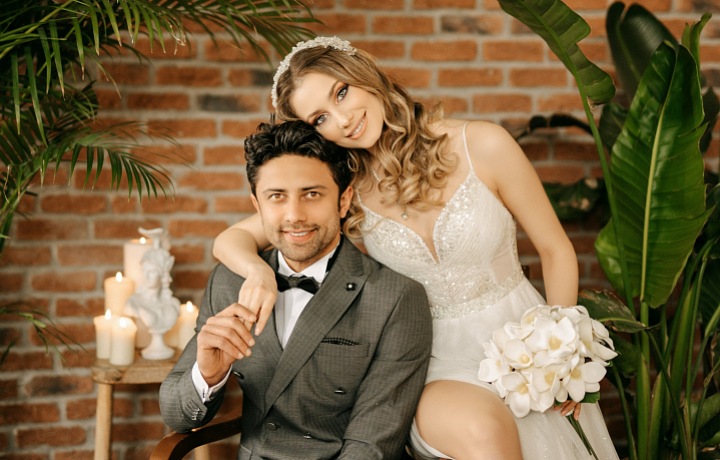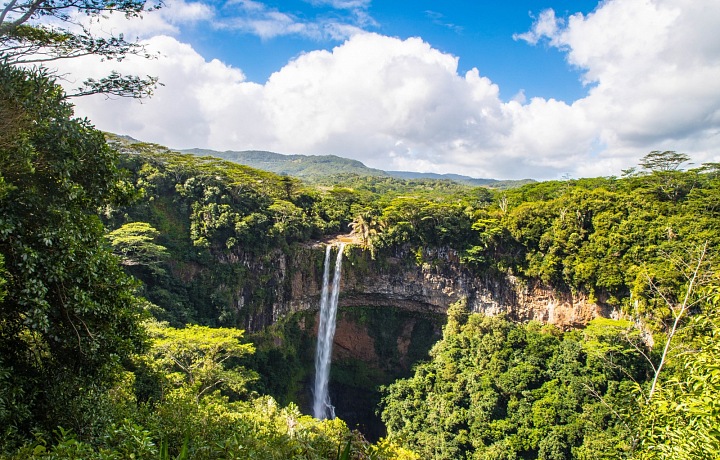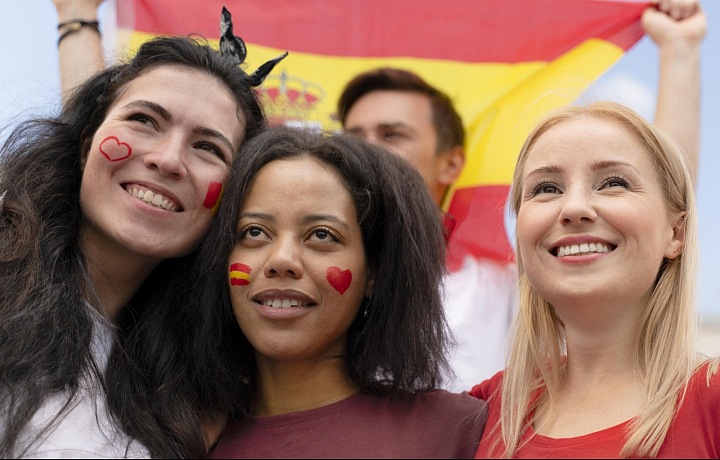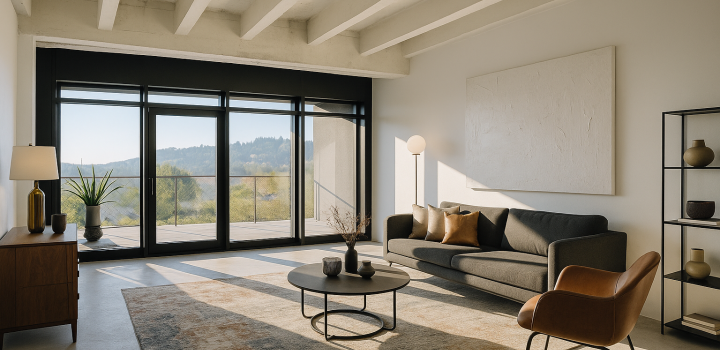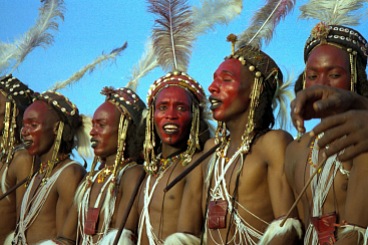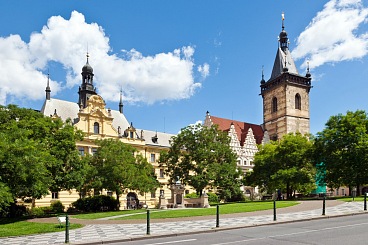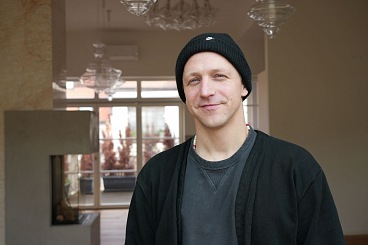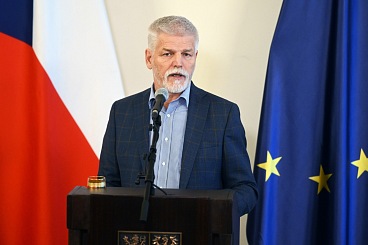I Take a Venezuelan: Love Under the Latin Sky. Thirteen Coins for Love and One Crazy Hour Extra
In Venezuela, a church wedding itself has no legal validity. For the marriage to be officially recognized, a civil ceremony must first take place in the district where at least one of the fiancés has permanent residence. Religious ceremonies are most often held in churches as approximately 88% of the population are Christians, of which more than 70% are Roman Catholics. Other religions, such as Islam and Hinduism, are also represented in the country, but they are only small communities.
She would never have thought that fate would lead her so far away. Lucie, a teacher, went to Venezuela for a mere three months to teach English and take a break from the monotony of her life. At first, she felt like a stranger not only on another continent, but also among people who lived very differently from her. Everything was louder, more colourful, more impulsive, then she met Diego.
Diego was not a rich man. He worked as a mechanic in a small family repair shop, dirtying his hands with oil every day and barely washing them in the evening. But he had a look that said more than a hundred words. And when he smiled, Lucie felt as if the sun had just risen for her. At first, she was cautious. They came from completely different worlds – she had a degree, he barely finished school. She was used to planning, he lived from day to day. In his simplicity, however, she found something rare – peace, honesty, laughter that did not cover up emptiness, but filled it. When, a year later, he asked her to marry him, he didn't have a Tiffany ring, but just a simple one, which was helped picked out by his best friend who was a jeweler, and sold it to him at half price. He explained to her that he couldn't promise her luxury, but he could promise loyalty, hard work and a heart that he wouldn't take back for anything in the world.
The wedding was modest. It took place in a small church in Caracas, where the local priest knew Diego personally from childhood. Lucie wore a white dress, which was lent to her by his cousin. The feast was in the garden, where aunts, sisters, and neighbors took care of the food. There wasn't any expensive photographer or live band there, but everything breathed truth. In the dance under the stars, surrounded by the song of cicadas and the scent of tropical flowers, she understood that happiness is not measured by money, but by whom we experience it with. And even though they sometimes struggled, counted every peso and figured out how to pay the bills, they always sat next to each other in the evening and said: "We will handle it. Because we are two."
Today they live modestly, but in Ecuador and not in Caracas, because it is considered the most dangerous and violent capital in the world. She teaches English, he has his own workshop. And even though their house doesn't have a pool or ocean views, there's laughter and the smell of arepas in their kitchen every evening. And that is more than all the gold in the world.
Traditional Venezuelan wedding customs
Engagement
Engagements are a very important part of wedding ceremonies in the country. Traditionally, the groom meets with the father of his chosen one and asks for his daughter's hand. He is often accompanied by his family at this formal event. If the bride's family agrees, the couple officially get engaged and preparations for the wedding begin. During this time, everything necessary for the ceremony and feast is arranged.
Arras - exchange of coins
This tradition is typical for Catholics. During the ceremony, the priest blesses 13 gold coins, which he gives to the groom. He then gives them to the bride as a symbol of trust and surrender of all material things he owns. Silver and gold coins symbolize Jesus' apostles and speak of wealth and happiness. Sometimes the bride reciprocates this act by handing over rings, expressing love and mutual trust.
La Hora Loca - crazy hour
"The crazy hour" is a tradition that originated in Venezuela. It's a moment during the wedding celebration when the party begins to calm down - then unexpectedly, loud rhythmic music starts playing, and everyone, including the newlyweds, throw themselves back into dance and fun as if the party was just beginning.
Wedding feast
Wedding feasts in Venezuela are grand and rich in food, drink, and entertainment. Traditional dishes are served, dancing happens, and gifts and congratulations are given to the newlyweds. Feasts often last until late into the night. An interesting custom is the attempt by the newlyweds to "escape" during the feast, but the guests have to watch carefully and prevent this.
Laws, Rights and Responsibilities
The minimum age for marriage is 18 years. With the exception of parental consent, younger children cannot marry. Marriage must be concluded by a state-approved official. Couples must provide a marriage eligibility certificate, as well as foreigners. After divorce, parents share parental rights with children under 7 being automatically awarded to their mother. Women also have the right to inherit from their husbands and acquire property.
In Venezuela, it is customary to have both civil and church weddings, with the latter usually being more lavish. The country has a rich culture, influenced by various nations. Once all administrative requirements have been met, a marriage can be concluded fairly quickly. Despite some differences from other countries, marriage remains deeply entrenched value in Venezuela.
After the wedding
Now let's look at what awaits the future bride after the wedding. She faces daily discovery not only of her husband, but also his culture, family and customs, which may be miles away from those she grew up with. She learns to live in a country where everything is louder, warmer, more spontaneous - from the morning greeting to the evening dances on the terrace. And even though not everything is always easy, the love she feels gives her the strength to accept even what she once couldn't even imagine.
Children's games in Venezuela
In Venezuela, a number of traditional children's games have been preserved. Among the most interesting are, for example, a game with a pole, which is coated in grease and is about five meters high. Participants try to climb to the top, where a reward awaits them.
Another popular amusement are "metras" - small balls made of clay or colored glass. Players try to get them into small holes using various techniques. Group activities like "las rodas" are also popular, where children form a circle, hold hands, sing traditional songs like "Arroz con leche" or "La culebra del mar" and dance.
Also very traditional is the so-called "gurrufío", whose history dates back to 400 years ago. It is a toy made of metal, wood or plastic, which is spun with a string, something like our Czech "top".
Food and culinary customs
Venezuelan cuisine is diverse and tasty. Among the typical festive dishes is, for example, "pan de jamón" - sweet dough filled with ham, bacon, olives and raisins, which is prepared during Christmas. An integral part of the holidays is also "hallaca", a dish made from corn dough wrapped in a banana leaf.
Another popular dish is "pabellón criollo", the national dish of the country. It consists of white rice, shredded beef, black beans and fried bananas.
The basis of daily diet is "arepa" – a cornmeal pancake served with most meals.
Indigenous Tribes
More than thirty indigenous ethnic groups still live in the country. For example, the Warao tribe inhabits the area of the Orinoco River Delta and their life revolves around the moriche palms, which serve as a source of food, raw material for building houses, decorations and clothing. Their dwellings can either be "sidewalk houses" built on stilts over the water, or "morichaleras", which are located deeper in the jungle.
Another well-known tribe is the Wayuu, residing on the Guajira Peninsula. When girls enter puberty, they are isolated for a certain period of time to prepare for the role of a woman. The Yukpa, who are from the Zulia region, originate from the Amazon areas and their main food is corn.
Maritime tradition
Venezuela has a long coastline, so maritime customs are an important part of the culture.
For example, when a ship crosses the equator for the first time, new crew members undergo a so-called baptism. If a maritime officer gets married, it is customary to toast with a drink called "bomb" - a mixture of various alcohols, and an honorary sword-lined corridor is created for him.
Traditionally, a bell was used on ships, announcing the change of guards, the end of the workday, or time for rest.
Religion and tradition
The most widespread religion is Catholicism. Fasting and Easter have an important place in spiritual life. On Palm Sunday, a palm from the "Palmeros de Chacao" procession is used, which precedes the ascents on Mount Ávila. On Good Friday, believers move between seven churches to commemorate the suffering of Jesus Christ.
In countries like Vargas, Guárico and Miranda, the celebration "Dancing Devils of Yare" is held, which is inscribed on the UNESCO World Heritage List. Masked participants symbolically represent the struggle between good and evil.
Carnival
The Carnival, also known as Shrovetide, is celebrated from February to March. It is accompanied by music, especially calypso, but also salsa or zumba. This is a magnificent event, which is celebrated especially in the states of El Callao, Anzoátegui and Sucre.
The carnival has been held in Puerto Cabello since 1871. One of its parts is the "Funeral of the Sardine", symbolising the beginning of fasting. Elsewhere, for example in Carúpano, parades with allegorical floats, dancers, and colourful costumes take place.
Life in Venezuela - a paradise of Caribbean beaches or a struggle for everyday survival?
Venezuela is a country of contrasts. On the one hand, it offers beautiful natural scenery, including endless beaches of the Caribbean Sea, green rainforests or the impressive Salto Ángel waterfall. On the other hand, however, it is grappling with long-term political, economic, and social problems, which significantly affect the quality of life of ordinary inhabitants.
Economic Reality
Venezuela has some of the largest oil reserves in the world, but paradoxically it is struggling with huge inflation, shortage of basic goods and high unemployment. Many inhabitants live below the poverty line and rely on help from abroad or support from a family living in exile.
Venezuela is also facing a food crisis, which is devastating to health. This is comparable to crises in war-torn countries or in states affected by natural disasters.
Healthcare and Education
Access to health care is limited - hospitals often suffer from a lack of medicines, medical materials and staff. The education system is also in decline, many children do not complete their studies due to the economic situation of the family.
Safety and Daily Life
Crime is high in many parts of the country, especially in the capital Caracas, which is one of the most dangerous cities in the world. Daily life is marked by power outages, water shortages and frequent protests by residents.
Family Values and Interpersonal Relationships
Despite difficult conditions, Venezuelans emphasize values such as family, solidarity, and joy of life. Weddings, family celebrations, and music are their escape from everyday problems and a way of maintaining hope and dignity.
Is it good to live there?
The answer depends on the point of view. For a tourist, Venezuela can be an exotic adventure full of beauty and culture. For the inhabitants, it is a country where love and family are a firm anchor in difficult times. For a future bride who has decided to live side by side with her Venezuelan husband, it means not only accepting his culture and traditions but also living in a country where every smile is valued twice.
Source: author's text, astelus.com, marryonchain.com, himachalabhiabhi.com, tradicioness.com


